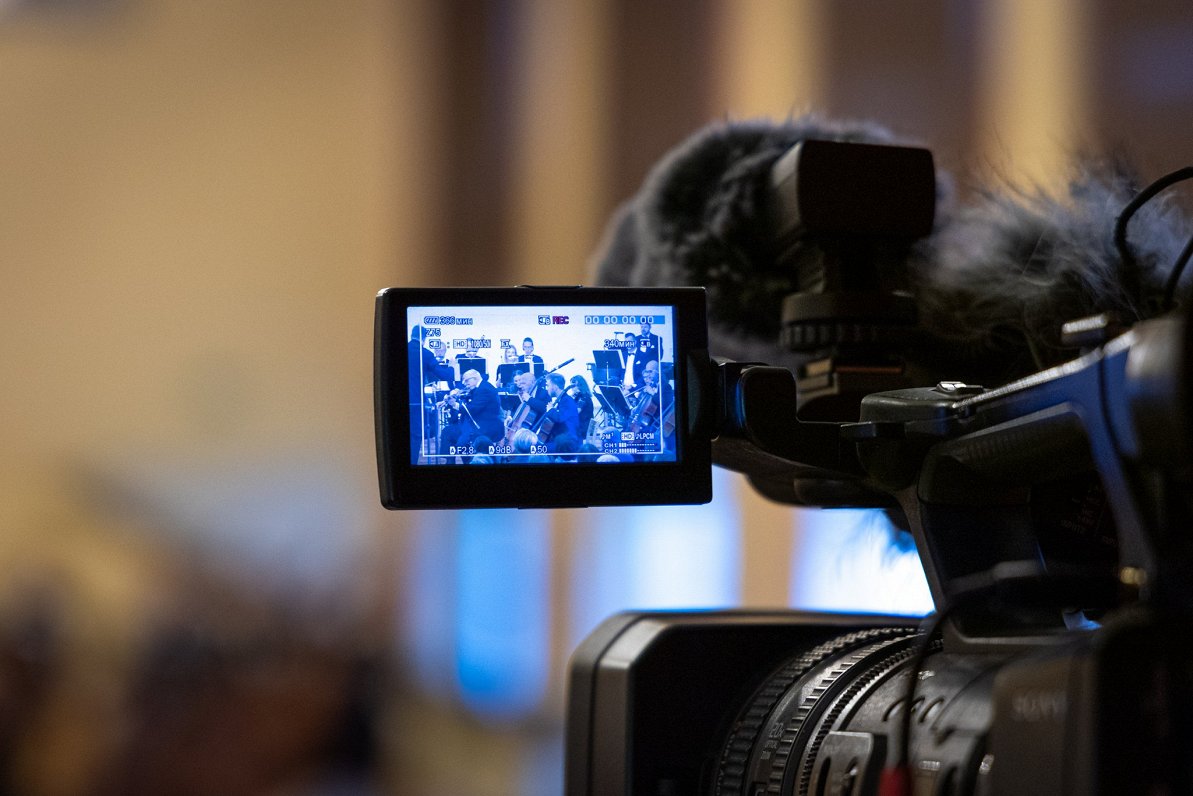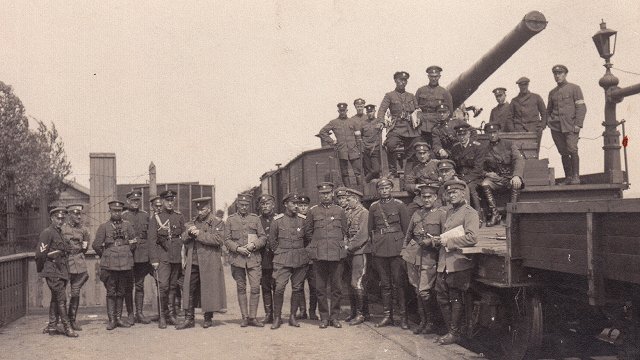The attitudes of representatives of the Latvian media audience on these issues are contradictory. Public media is assessed as independent and professional, but there is also personal experience of media use, distrust of state institutions, the impact of the Russian invasion of Ukraine on public opinion, and the anti-media discourse used in political communication in recent years, in which the media and professional journalists are singled out as responsible for societal crises and problems.
It is no surprise one of the participants in the study says: "I'd like to believe [in public media independence]. Hope dies last. It's important to me. I feel sorry for our reporters because they are supposedly willing to express themselves, but they have to write what they are told because [former Prime Minister] Kariņš has given money and everything." (woman, 54, Rīga, nationality other than Latvian).
How to understand and think about media independence?
The question of independence of the media is complex, because the media both observe and evaluate the processes of society and depend on the conditions of the business environment, the conditions of the media regulation, and the influence of social and political processes.
In journalistic research, independence is usually assessed according to the self-perception of media professionals – whether journalists have the opportunity to make independent decisions about their work, and whether editors freely decide matters related to content while also fulfilling the goals of media owners and managers.
Independence can also be measured at the organizational structure level: is the editorial under a signed agreement with the owner that it doesn't influence the content? Such is necessary, for example, if commercial media claims taxpayer funds in projects of the Media Support Fund, which are intended for the creation of high-quality journalism.
Does media regulation protect the media from attempts to limit their independence from politically and economically influential figures? Doubts about restrictions on independence or changing it for some other interests undercut confidence in a particular medium, and in professional journalism at all.
The independence rating of Latvian journalists is very high: 96% of 486 journalists surveyed by Worlds of Journalism Study in 2021 believe they are free to make decisions about their own content. 82% of journalists consider Latvian media in general to be independent.
Media regulation also guarantees independence. For example, the supplement to Article 16 of the Law on the Press and Other Mass Media, entitled “Editor-in-Chief (Editor) of the Media”, annexed in 2011, provides that “the Editor (Editor-in-Chief) shall be independent in the performance of their duties”. This is an important Article demonstrating the importance of editorial independence, although generally declaratory since no consequences or solutions have been proposed by the legislature in the event of an infringement.
How does the public see media independence?
When assessing independence as one of the editorial values of public media, audience representatives are cautious and doubtful. They distinguish between public and commercial media independence, attributing to each media segment their reflections on both the advantages of being independent and potential limitations on independence.
Commercial media and their content raise suspicions among study discussion participants that the owner determines what decisions editorial workers make, as commercial interests can prevail, overshadowing the rights and obligation of professionals to work independently.
Public media is assessed in two ways in the 2023 public media target audience survey - as more independent and therefore more professional, and as not free from the influence of the money giver (government).
"It is clear on commercial media that they have an order. Of course, they will do what their employer asks them to do. As far as the public media are concerned, I assume that they also have certain guidelines, some kind of order." (Woman, 49, Latgale region, Latvian language).
"When it comes to commercial media, whoever owns it wants to get something done with having that medium. As a result, it is no longer considered to be anything neutral. And public media also – they represent those people who decide what public media needs to do." (Man, 45, Kurzeme region, Latvian language).
Public media may not be sufficiently clear on how public media is different from state media, what independent action, free and responsible content creation means. Different periods of their activity and attempts to influence them have been spotted. Participants also have heard about the problems of Latvian Radio and Latvian Television funding and linked them to the possible influence of the government on public media independence.
The Law on Public Electronic Mass Media and the management thereof prescribes that the public media supervisor may formulate the large objectives of Latvian Radio and Latvian Television, for example, to reach specific audience groups, improve professional quality, operate more broadly in the digital environment, but may not interfere in the process of creating content. It is therefore not possible for the supervisor to determine who participates in the programs, what issues are debated, and what opinions are represented.
Most of the participants in the discussion are able to distinguish between different types of media and appreciate their role. Not everyone agrees with the view of the media as an ordinary service or deal whose independence is determined by payer or payment, as stated below.
"Public [media] should be independent. In theory. Of course, journalism has to be independent. But it will never be. While there will be a government like this, journalism will never be independent." (Woman, 52, Kurzeme region, foreign nationality, Russian language).
“You have to work for who pays you. If you pay the media, they can't be free. If you don't like something, you'll take that funding off them, and that's the end.” (Man, 21, Latgale region, Latvian language).
Independent people or media?
It is much easier for participants in focus group discussions to recognize independence if the conversation moves into specific programs and journalists. Then the same participants contradict each other, because according to some, the media may depend on the decision-makers or owners' goals, while Gundars Rēders and Jānis Domburs, both well-known journalists, “are independent” (woman, 49, Latgale, Latvian language). Others agree with their independence, though some criticize those mentioned and other journalists for their style of conducting discussions or writing articles, yet rely on and respect their independence.
Not what everyone believes so. A Kurzeme resident, who does not believe in the existence of independent media (man, 50, Kurzeme), describes independence as a diversity of opinions which is insufficient because it is determined by political opinion-makers: "It's the information source of the top [leaders of the country]. They will also depend on the opinion, which is rudely directed in the Saeima or the government."
Other nationalities more skeptical
The public media assessment is influenced by the language used in the family and whether the participant of the discussion is well-versed in public media content. Foreign nationals expressed doubts about the independence of the media more often, especially those respondents who do not use public media or have been disappointed with it because the public media position on an issue has not been acceptable.
Some also express a favorable opinion: “I don't think there should be any untrue information out there.” (Woman, 19, Latgale, Russian language).
However, there is room for suspicion in notions of public media work about the need to follow “official” guidance:
“Yes, I think there's more censorship out there and there needs to be such demands that they need to talk more about what's going on in our country, more purposefully talking directly about our country.” (Woman, 32, Latgale, Russian language).
Asked to assess the situation, respondents agree that public media censorship is not desirable. It's hard for some to assess independence, and the media workraises suspicions. A man, 19, from the Latgale region and of foreign nationality, says: "I don't know how to answer that question. Maybe it has to do with when someone wants to propaganda something of their own. Give them money and they propaganda it".
Among the foreign nationals living in Kurzeme who participated in the study is a participant who does not believe in the independence of public or other media. His assessment includes both anger and frustration and popular political messages.
"No independent media at all! Okay, we're the owners. Then can I go and ask for my property to be returned to me? I can't. Why is all the Russian news now, some kind of Ukrainian-Russian news? Someone blew up there, someone blew up here and there. Why do I have to listen to those in the media which are [funded] by my taxes? I want to know what's happening with us in Latvia. I want to hear it right from public media. But there's nothing." (Man, 50, Kurzeme Group, Russian language).
When asked if they can name a show or broadcast that raises suspicions of journalism being unfree or influenced, examples do not follow. But the notion that public media is more of a state-controlled media is popular:
"If they are sponsored out of our taxpayers' money, so it's state media. So they say and show what the country tells them. They depend on it. It's hard to say on the one hand, maybe it's a good thing that they're not independent, but on the other hand, if they're not independent, then some information is hiding there, something is being hidden." (Male, 19, Latgale Group, Russian language).
“If you compare public versus commercial media, then the public media will have more independence.” (Female, 19, Kurzeme, Latvian language).
Despite critical opinions, independently produced information and the freedom of expression is of great importance to discussion participants, and its limitations cause alarm. In this respect, the values of participants in public media and discussion coincide, while the assessment of the level of independence varies.































